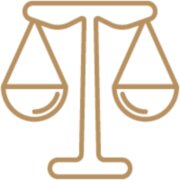Best Child Custody Lawyers in Pori
Share your needs with us, get contacted by law firms.
Free. Takes 2 min.
Free Guide to Hiring a Family Lawyer
List of the best lawyers in Pori, Finland
About Child Custody Law in Pori, Finland
Child custody in Pori, Finland, refers to the legal responsibility for a child's care and upbringing. Finnish law emphasizes the best interests of the child, focusing on their well-being, security, and balanced development. Parents can have joint or sole custody, and the arrangements may be decided by mutual agreement or through court proceedings if disputes arise. The process is regulated under national laws but is administered locally in Pori through municipal social services and the District Court.
Why You May Need a Lawyer
Legal assistance is often helpful in the following child custody situations:
- Disagreements between parents over custody, living arrangements, or visitation rights
- Complex family situations such as international relocation or non-parental guardianship
- Concerns about the child’s welfare or safety with the other parent
- Enforcement of a custody agreement or court order
- Changes to an existing custody arrangement due to changed circumstances
- Difficulties negotiating or communicating directly with the other parent
A lawyer experienced in Finnish child custody law can explain your rights, help draft or review agreements, represent you in negotiations or court, and ensure the process considers the child’s best interests at every stage.
Local Laws Overview
In Pori, as elsewhere in Finland, child custody is primarily regulated by the Act on Child Custody and Right of Access (Laki lapsen huollosta ja tapaamisoikeudesta 361/1983). Key points relevant to Pori include:
- Custody may be shared (joint custody) or granted to one parent (sole custody)
- Child welfare authorities encourage parents to reach an agreement through mediation before court involvement
- Court decisions are based on the best interests of the child, considering factors such as the child’s needs, emotional ties, and parents’ ability to cooperate
- Children’s own wishes are considered, especially if they are old enough or mature enough to express them
- Both parents are usually entitled to regular contact with the child unless contact would endanger the child’s well-being
- Decisions made by the court or agreements confirmed by social services are legally binding
- Local social welfare boards can assist with mediation and agreement confirmation
Frequently Asked Questions
What is the difference between joint and sole custody?
Joint custody means both parents are responsible for making major decisions about the child’s upbringing, even if the child primarily lives with one parent. Sole custody gives one parent the exclusive right to make these decisions.
How can custody agreements be made in Pori?
Parents can reach a mutual agreement and have it confirmed by the local child welfare authorities (social services). If an agreement cannot be reached, the matter can be taken to the District Court.
Is mediation required before going to court?
While not legally required, mediation is strongly recommended and offered by local social services to help families resolve disputes amicably before court proceedings.
How does the court determine the best interests of the child?
The court considers the child’s age, attachments, needs, health, and parents’ ability to cooperate, and takes into account any risk to the child’s well-being or safety.
Can children choose which parent to live with?
Children’s wishes are heard and taken into account according to their age and maturity, but the final decision is based on their best interests, not solely their preference.
Can custody or visitation orders be changed?
Yes, if there is a significant change in circumstances, custody or visitation orders can be modified by agreement or by court decision.
What happens if a parent does not follow a custody order?
Violating a court-ordered custody or access agreement can result in enforcement actions by the District Court, with the potential for fines or other measures.
Can grandparents or other relatives seek custody or access?
In exceptional cases, non-parental relatives can apply for custody or visitation if it serves the child’s best interests and circumstances warrant it.
Are child custody proceedings confidential?
Yes, child custody matters are handled confidentially to protect the privacy of children and families involved.
Do I need to live in Pori to file for custody in Pori?
A custody case should generally be filed in the District Court where the child resides, so cases involving children living in Pori are handled locally.
Additional Resources
For more information or support regarding child custody in Pori, the following resources can be helpful:
- Pori City Social Welfare Services (Sosiaali- ja perhepalvelut) offers counseling, mediation, and agreement confirmation
- Western Finland District Court (Satakunnan käräjäoikeus) handles court proceedings
- The National Legal Aid Office (Oikeusaputoimisto) can advise on eligibility for free or subsidized legal help
- The Finnish Bar Association (Suomen Asianajajaliitto) provides information on qualified local lawyers
- Mannerheim League for Child Welfare (MLL) offers family counseling and specific help for children and parents
Next Steps
If you need legal assistance with child custody in Pori, Finland:
- Start by contacting your local social services office for advice or mediation support
- Consult a qualified local lawyer who specializes in family law for personalized legal counsel
- If you have limited means, inquire about public legal aid through the Legal Aid Office
- Prepare relevant documents such as birth certificates, previous agreements, or court orders
- Consider mediation as a first step before court action, as it is often less stressful and more cost-effective
Taking action early and seeking professional advice can help ensure the best outcome for you and your child.
Lawzana helps you find the best lawyers and law firms in Pori through a curated and pre-screened list of qualified legal professionals. Our platform offers rankings and detailed profiles of attorneys and law firms, allowing you to compare based on practice areas, including Child Custody, experience, and client feedback.
Each profile includes a description of the firm's areas of practice, client reviews, team members and partners, year of establishment, spoken languages, office locations, contact information, social media presence, and any published articles or resources. Most firms on our platform speak English and are experienced in both local and international legal matters.
Get a quote from top-rated law firms in Pori, Finland — quickly, securely, and without unnecessary hassle.
Disclaimer:
The information provided on this page is for general informational purposes only and does not constitute legal advice. While we strive to ensure the accuracy and relevance of the content, legal information may change over time, and interpretations of the law can vary. You should always consult with a qualified legal professional for advice specific to your situation.
We disclaim all liability for actions taken or not taken based on the content of this page. If you believe any information is incorrect or outdated, please contact us, and we will review and update it where appropriate.









